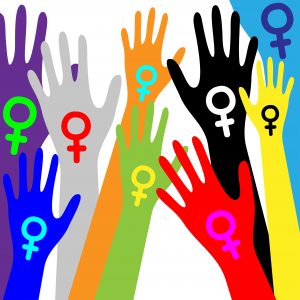 Over the past couple weeks, a few stories in the political realm have really struck me and I bookmarked them to discuss in this week’s column. Without further ado, let’s dive in.
Over the past couple weeks, a few stories in the political realm have really struck me and I bookmarked them to discuss in this week’s column. Without further ado, let’s dive in.
On Oct. 21, the New York Times published a piece about female lawmakers in Japan. It popped up in my notifications, and I was intrigued so I clicked on the article and was blown away — and not in a good way.
According to the article, Japan has one of the worst records in the world for female representation in politics and ranks 165th out of 193 countries. Women hold just over 9 percent of seats in the lower house of parliament. In national elections on Oct. 22, fewer than one in five of the 1,180 candidates were women, and what absolutely floored me is that that number is considered to be a record high for Japan.
There are many barriers for women entering political office in Japan. Like in the United States and many other countries, women often face scrutiny from the media and the public over their personalities and appearances, rather than political achievements or policies. Experts doubt that much will change in Japanese political life anytime soon, but say that more needs to be done by powerful political parties to provide enough support for women to assume leadership positions.
The second major story of the past few weeks is about the election of the latest Prime Minister of New Zealand, 37-year-old Jacinda Ardern. Ardern is the third woman to lead New Zealand, and its youngest leader in more than 150 years.
It stood out to me simply because firstly, I love seeing women in positions of power, and second, I couldn’t help but think of all the girls in New Zealand. They are going to grow up knowing and recognizing women in power at the highest levels of government, and that’s an amazing thing to think about.
The reporter interviewed two teenage girls, who are leaders of a feminist club at their school; they said they hoped Ardern would improve the national curriculum for sex and consent education as well as decriminalize abortion. One of the young women was quoted as saying “she understands what it’s like to be a young woman today.” This political representation is extremely important and cannot be understated. When girls and young women see other women in positions of power in all sectors, including politics, it means something, no matter how many people dismiss the idea.
The third story is about elections in the United States on November 8; the election results gave groundbreaking wins to a coalition of women, minorities and members of the LGBTQ community. One of my personal favorite stories of this past election cycle is that of Ashley Bennett, a 32-year-old woman who ran as a Democrat for the Atlantic County Board of Freeholders in New Jersey. Bennett was inspired to run after the Republican incumbent, John Carman, posted a picture on Facebook ridiculing the Women’s March in January. Bennett won by a substantial amount of votes — 1,000 out of 14,000 ballots cast.
While men still heavily dominate political office in the U.S., women have made strides in recent years. Women hold roughly 20 percent of the 535 seats in Congress and between 20 to 25 percent in state and municipal government. I look forward to a day when women, who make up half of the population, hold half of all available political positions, not only in the U.S., but worldwide.
The thing these stories all have in common, or what stood out to me anyway, is that representation matters. When girls see themselves represented and reflected in the political world, in the business world, in the entertainment world, it has a big impact on their self-esteem and their psyche. It matters.
-Sage Daugherty
Junior Girl
Girl Museum Inc.
